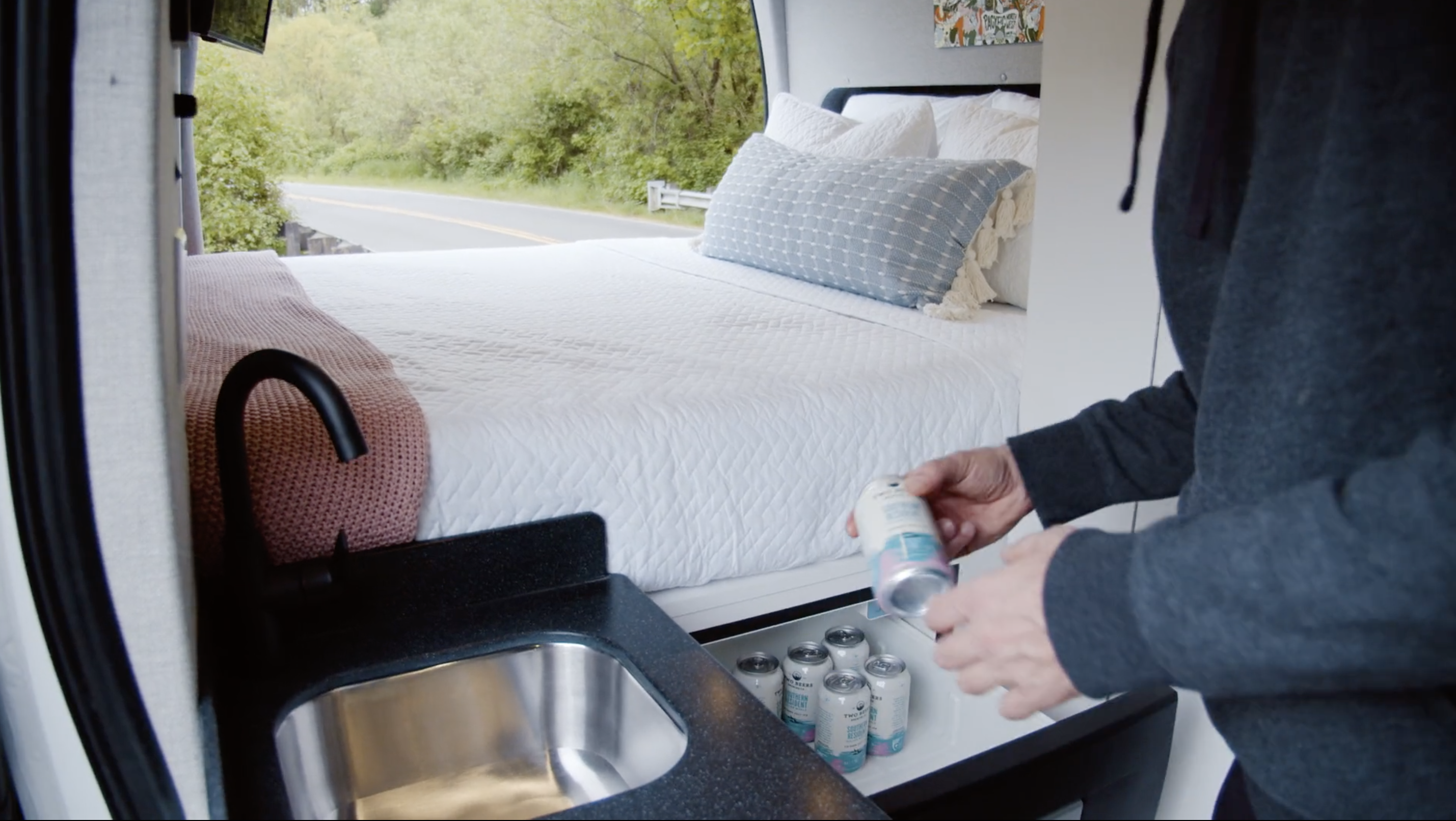Is it glamping on wheels? Hotel #vanlife?
It’s Cabana, a new startup from a former Lime executive that’s bringing tricked out vans with all the amenities of a Holiday Inn hotel room to cities on the West Coast starting in Seattle.
“Because of Lime I spent 54 consecutive weeks on the road staying at hotels,” recalls Scott Kubly, the co-founder and chief executive of Cabana . “I got this bug that there needed to be a better way.”
So with the benefit of a few years of startup salary in the bank, Kubly launched Cabana. “The way I would describe is vanlife, meets car-sharing, meets a boutique hotel. It’s a hotel room packed into the back of a van.”
The vans come with showers, toilets, a slide out two-range stovetop that can serve as a kitchen and the freedom to hit the road after a customer crushes that last sales meeting, conference appearance, convention, or just needs to travel and experience the outdoors.
The vans cost $200 per-night plus tax to rent and there’s a fleet of several vans already available in Seattle. Booking a van is simple through the company’s app and everything is contactless — an important feature in the COVID-19 era.
[gallery ids="1995050,1995048,1995047"]
Kubly estimates that there’s around $15 billion spent on travel that he thinks he can unlock with Cabana and the company is definitely tapping into a small, but not insignificant trend of glamping, vanlife, luxury experiences that investors are already backing.
Companies like Tentrr, HipCamp and even Airbnb have gotten in on the vanlife movement and Cabana’s founder definitely thinks he can ride the wave.
Cabana has already raised $3.5 million from investors led by Craft Ventures — the investment firm founded by David Sacks. Other investors included Goldcrest Capital, Travis VanderZanden, the chief executive and founder of Bird, and Sunny Madra, Vice President Ford X at Ford Motor Company.
“Cabana gives people an ideal combination of freedom, comfort, and convenience,” said David Sacks, co-founder and general partner of Craft, in a statement. “Despite the societal upheaval of the last few months, the human desire to travel and explore remains unchanged. Why shelter in place when you can shelter in paradise?”
Sacks may be on to something. According to Kubly, the RV rental business has exploded and are up 650% year-on-year. “People are going a little stir crazy,” he said.
Back in 2019 when Kubly and his co-founder Jonathan Savage, a former nuclear engineer for the Navy and the bassist in the Red Not Chili Peppers (a Red Hot Chili Peppers cover band), launched the company, they weren’t expecting to have to deal with running a hospitality business during a pandemic, but they’ve adapted.

Image credit: Cabana
Cabana’s fleet of vans are cleaned and then irradiated with UVC light (the same treatment the President suggested, wrongly, for people) and then left to stand for six-to-eight hours between rentals.
The hardest part of the business hasn’t been handling the vans or disinfecting them for customers concerned about the novel coronavirus, but the more mundane task of cleaning out the toilets.
“There is a toilet and a toilet tank,” said Kubly. “At the end of every trip we swap that out. Just like scooters have swappable batteries we have swappable toilet tanks. It is the big downside of the business.”
He should know. He spent the first six months that the company was in business cleaning out the tanks himself on the retrofitted van that he and Savage had bought to test the business idea.
“Ideas that utilize existing infrastructure and satisfy a previously unseen or emerging consumer need are often the genesis of companies that can establish and lead a new industry,” said VanderZanden in a statement. “Cabana fits squarely within this theory and provides travelers a new way to experience and explore destinations that might not otherwise have been available to them while also avoiding carbon-emitting flights.”
